Profile: 'I can’t think of any other job I would rather have', says CQC’s first chief inspector of adult social care
Andrea Sutcliffe began her new job with a bang last month, hitting the headlines with the controversial announcement, that the Care Quality Commission is to explore the benefits and risks of installing hidden cameras in care homes.
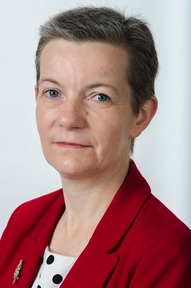
As the first chief inspector of adult social care, she is responsible for transforming the way the Care Quality Commission (CQC) monitors, inspects and regulates care homes, home care and other adult social care services.
Ms Sutcliffe left her job as chief executive of the Social Care Institute of Excellence to take up the post. Yet being responsible for monitoring and regulating care is a tall order and if another abuse case like Winterbourne View occurs, it could well be Ms Sutcliffe who carries the can.
Few probably envy Ms Sutcliffe for the new role she has taken on. However, with the twitter handle of crouchendtiger7, she seems to be fearless and obviously relishes a challenge as she calls her new job “the highlight of my career” and says: “I can’t think of any other job I would rather have and I feel tremendously lucky that all of my experience, the ups and the downs, meant I was able to convince the CQC to take me on!”
Ms Sutcliffe was attracted to the role because she believes “the Care Quality Commission and the chief inspector role can make a difference by promoting the good practice that exists, improving standards and tackling poor care and I wanted to have a chance to make that difference”.
“It’s not just about me though. I understand that the role of a regulator is limited and it is the people who provide, manage and fund services who have the direct responsibility to ensure safe, effective and compassionate care is delivered. I want to work collaboratively with everyone involved to inspire improvement and change.”
Good communication between agencies is key for Ms Sutcliffe, whose brother committed suicide seven years ago.
Her youngest brother Adrian was one of 3,131 male suicides in England in 2006.
“Adrian began life as a happy, contented boy loved by his family. But he changed as he grew older - more withdrawn, miserable and on occasion seized by sudden rages. He was in pain but we did not realise and I certainly did not understand why,” she reveals.
In his late teens, her brother tried to kill himself for the first time. In his twenties, he made another attempt to kill himself. “This began a difficult period for us all. Officially diagnosed with severe clinical depression, exacerbated by alcohol, he went through periods of remission, before he relapsed and ended up back in hospital.
“Our family is grateful to the combined efforts of the local health and social care services and voluntary agencies for keeping him alive for 11 more years. The care he received was not always perfect but Adrian preferred to stay where he was known and supported.”
In his mid-thirties, things seemed to be improving. He had a job and a girlfriend and seemed much better.
However the warning signs were not picked up. He stopped taking his medication and a breakdown in communications between different health and care services left him without help and this time he was successful in killing himself.
What happened to her brother obviously had a massive impact on her and her family and she says it underpins her approach to what she does and “serves as a constant reminder of some important lessons”.
“Above all, I wanted to make sure that the people using services are at the heart of the work of the chief inspector. I knew that would be my approach and I was delighted when I was offered the opportunity to make it a reality. As chief inspector, I want to work with the sector to drive improvement and ensure that high-quality services are delivered for everybody using those services, each and every time.”
Ms Sutcliffe has worked in the health and social care sectors for nearly 30 years, managing a range of services including those for children and for older people.
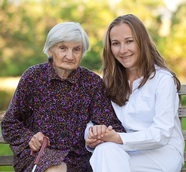
“I know that concerns have been raised about failings in care services – and it is important that we tackle those problems and take action, when necessary. But we should also recognise that there are some fantastic services in adult social care and some truly amazing staff who provide care sensitively and compassionately.
“I hope that I can play my part in helping to improve adult social care services so that in the future we can be confident that the services we regulate provide high quality care that is good enough for our loved ones – for me it’s the ‘Mum test’.”
She admits “we are a long way from that now and there is a lot of work to do with everyone involved, including people who use services, their families and carers”.
Ms Sutcliffe outlined her priorities and ideas in a signposting document called ‘A Fresh Start’ spelling out a new approach to the way the CQC inspects and regulates the sector.
The priorities include “creating expert teams, with inspectors who specialise in adult social care and involving more people who have a personal experience of care services – our Experts by Experience.
“Rather than solely focusing on compliance with the regulations, in future CQC inspections will be based around the five key questions that matter most to service users and their families: are they safe, effective, caring, responsive to people’s needs, and well led.
“We will also introduce ratings for adult social care services so that our judgements are clear and accessible to all. By March 2016, every adult social care service in England will be rated as Outstanding, Good, Requires Improvement and Inadequate.”
Ms Sutcliffe has also pledged to watch any footage that families have secretly filmed of alleged neglect or abuse and to celebrate the good but be tough on the bad with inspectors taking a more rigorous approach. She promises to take “tough action when it is required” and issue “fixed penalty fines” if need be.
Ms Sutcliffe is clearly determined to root out poor care and prevent cases such as Adrian’s happening. She says: “Sharing Adrian's story is difficult and fills me with sadness and regret but I know that on this occasion silence is not golden.
“Integration or joined up working is not a meaningless concept, it needs to be rooted in the practical reality of how services are provided for each individual.
“There were warning signs that Adrian was getting into difficulty but no-one in health, housing or social care shared that information in a meaningful way.”
But celebration of good care is also vital. “None of us working in care and support services should underestimate the positive impact of the work we do. Adrian and our family valued the support he received. We should promote the status of the work we do and make it a positive career choice for people who want to care.”
More on the proposal to look at hidden cameras and ‘mystery shoppers’ in care homes can be found at www.carehome.co.uk/news/article.cfm/id/1561287/cqc-hidden-cameras-mystery-shoppers-monitor-care-homes-tough-inspection-regime
Interesting Facts
First job: My first job in the health and social care system was a summer job as a cleaner in a hospital. Before that I had various jobs here and there, including selling shoes on a market stall, working in a local newsagent, and waitressing.
Favourite book: Pride and Prejudice – it is an old friend and I re-read it regularly.
Favourite film: ‘A Matter of Life and Death’ – a quirky choice for me as I usually like a bit of gritty reality, but this is a romantic fantasy from 1946 that gets me every time!
Favourite piece of music: ‘The Hall of the Mountain King’ from Peer Gynt by Edvard Grieg.
What is the best present you have received: That’s a difficult one! My husband is a superb present buyer, and so I have a lot to choose from. Having said that, I love the white china dinner bowls he gave me last Christmas!
What was your last holiday: Hiking in the Swiss Alps.
Latest Profiles News
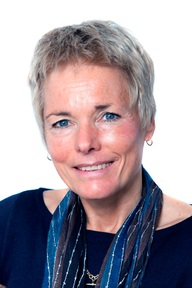 05-Sep-16
Being chief executive of a care home provider is a 'huge responsibility and privilege'
05-Sep-16
Being chief executive of a care home provider is a 'huge responsibility and privilege'
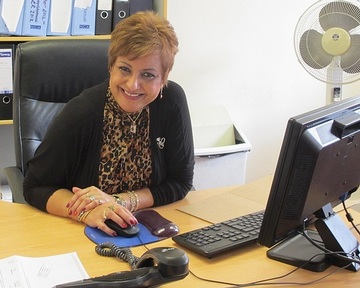 31-Mar-15
Profile: 'Both local and national Government needs to put its money where its mouth is,' says chair of the National Care Association
31-Mar-15
Profile: 'Both local and national Government needs to put its money where its mouth is,' says chair of the National Care Association
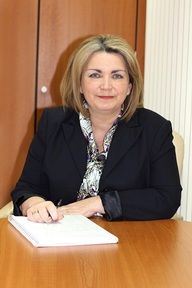 16-Dec-14
Profile: Care home turnaround specialist reveals some of the tricks of the trade
16-Dec-14
Profile: Care home turnaround specialist reveals some of the tricks of the trade
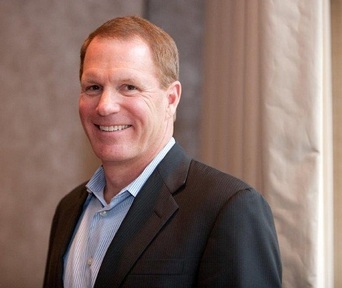 01-Dec-14
Profile: ‘People should not be dreading going into a care home – they should be looking forward to it,’ says care home boss
01-Dec-14
Profile: ‘People should not be dreading going into a care home – they should be looking forward to it,’ says care home boss
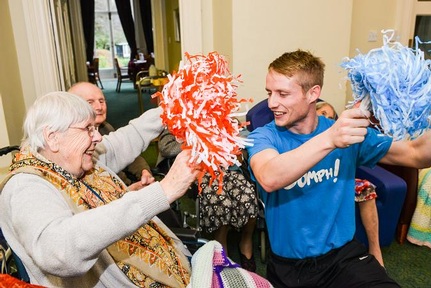 07-Oct-14
Exercise is key to 'changing the care sector' says provider of exercise therapy in care homes
07-Oct-14
Exercise is key to 'changing the care sector' says provider of exercise therapy in care homes